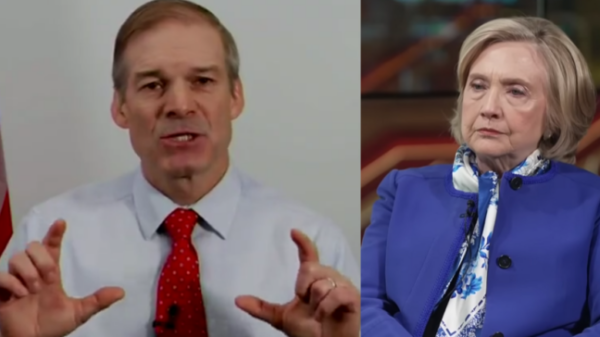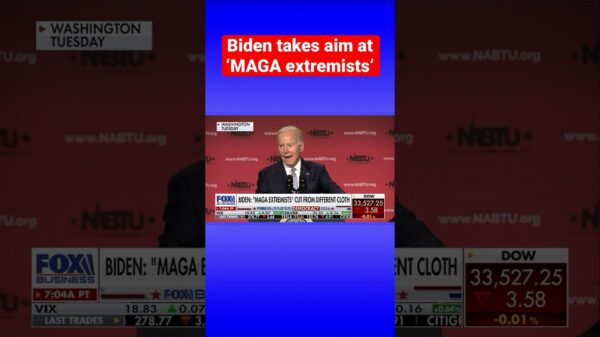Secretary of State Adrian Fontes said he does not have the authority to bar Donald Trump from the Arizona ballot next year, despite renewed interest in a provision of the U.S. Constitution that allows disqualification.
Fontes’ comments come as some legal scholars and nonprofit organizations are promoting the notion that the 14th Amendment to the U.S. Constitution requires ballot disqualification for anyone who has previously taken the oath of a public office and engaged in “insurrection or rebellion” against the government. They argue that applies to Trump.
But that can’t happen under Arizona law, Fontes, the state’s chief elections officer, said in an interview with The Gaggle, the politics podcast of The Arizona Republic and azcentral.com.
An Arizona Supreme Court ruling last year concluded that only Congress has the authority to enforce what is called the Disqualification Clause.
Not that Fontes, a Democrat, agrees with the ruling. He called the Supreme Court’s decision “dead, flat wrong” but said he has a duty to follow the law.
The ruling stems from a lawsuit last year that sought to block U.S. representatives Andy Biggs and Paul Gosar, as well as secretary of state candidate Mark Finchem, from being placed on the 2022 ballot.
The plaintiff, a voting rights group out of Boston called Free Speech for People, argued that Section 3 of the 14th Amendment prevented the three candidates from running because of their roles in the Jan. 6, 2021, protests that led to an insurrection at the U.S. Capitol.
The organization lost in Maricopa County Superior Court and appealed to the Arizona Supreme Court. The high court concluded because the 14th Amendment gives Congress the exclusive enforcement authority, it “suggests that Arizona law does not provide a private right of action to invoke the Disqualification Clause against the defendants.”
That decision allowed the three candidates to be on the ballot. Biggs and Gosar were re-elected to their congressional seats; Finchem lost the secretary of state race to Fontes.
Legal challenges likely in 2024
Fontes called the ruling “stupid.”
As he follows the logic of the court’s ruling, someone who was born overseas could run for president in Arizona, since there would be no state authority to disqualify the individual for not meeting the constitutional requirement of being born in the United States.
The ruling could lead to other complications, Fontes said.
“Does a 25-year-old get to be on the ballot in Arizona for president?” he asked. “According to the logic of the Arizona Supreme Court, they do.”
“That having been said, can the Arizona Supreme Court be overturned?” he asked rhetorically. “If somebody brings a lawsuit? Well, any law can be overturned in a judicial action. Now, I’m not inviting someone to sue me, although it probably will end up happening.”
The Constitution requires a president must be 35 years of age or older at the time of taking office.
Despite his critiques, Fontes said his personal opinion is irrelevant and he will abide by the law.
No option but to disqualify
It’s too early see any legal action. The secretary of state’s office can start accepting nomination papers and petitions for the March 19 presidential preference election on Nov. 10.
But Free Speech for People maintains there is no option but to disqualify if Trump seeks to gain ballot status.
“We have been clear that all secretaries of state and chief election officials must follow the mandate of section 3 of the 14th amendment,” Ron Fein, the organization’s legal director, told The Republic in an email.
Fein did not specifically address whether the 2022 ruling from the Arizona Supreme Court exempts Arizona, but underscored that “all” elections offices are obliged to follow the U.S. Constitution.
On its website, the organization maintains states don’t need congressional action to disqualify.
During the Reconstruction period after the Civil War, states disqualified candidates because of their involvement in the war as members of the Confederacy. The 14th Amendment was added to the Constitution in the wake of the Civil War.
More recently, Georgia and New Mexico last year invoked the clause to disqualify candidates who had participated in the Jan. 6 insurrection.
“These challenges did not need any special federal legislation, relying on standard state legal procedures for challenging a politician’s constitutional eligibility for office,” the group states.
The effort succeeded in New Mexico, where a state court disqualified a county commissioner. In Georgia, a federal judge rejected an attempt to bar U.S. Rep. Marjorie Taylor Green from the 2022 ballot.























